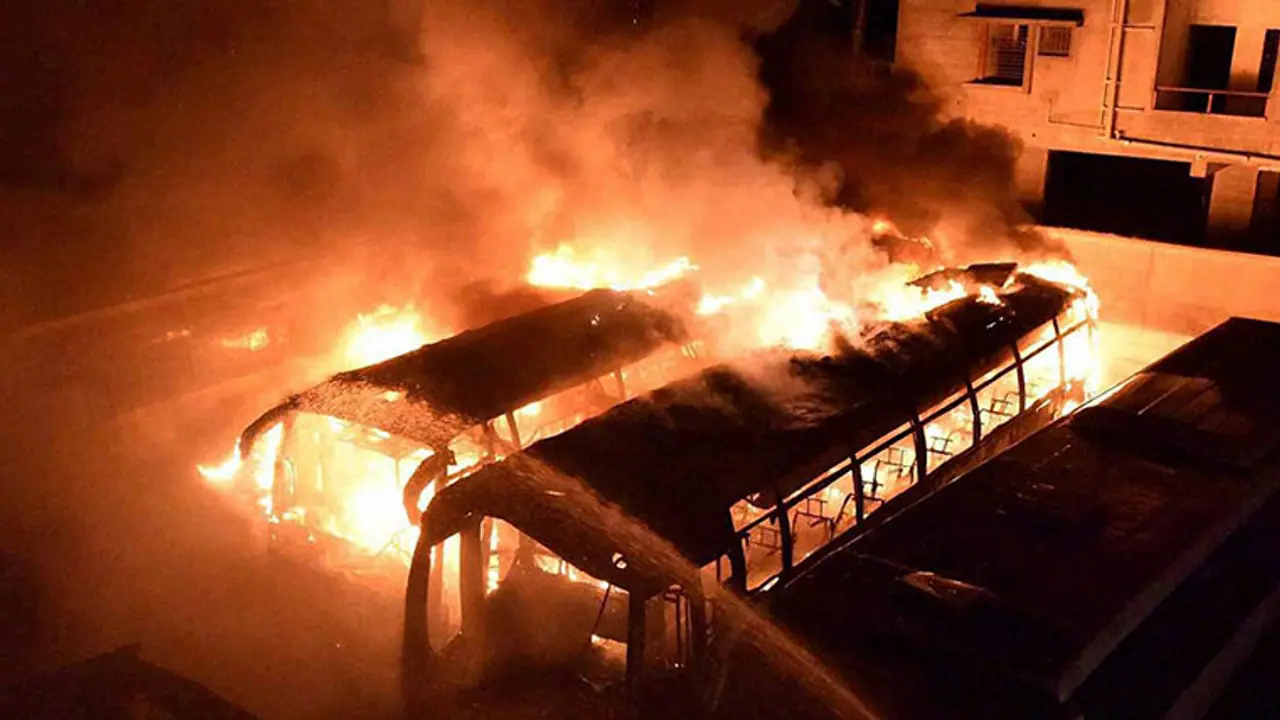Bengaluru's cosmopolitan, secure and secular image has taken a hit. The recent violence has been an unprecedented situation for a city which is the mecca for most Indian IT professionals.
The agitation over Cauvery water crippled Bengaluru for two whole days with mob violence and a disruption of public order not witnessed in a decade. Life hadn't yet limped back to normal in the country's IT capital after the state bandh Friday last when the city was caught up in the maelstrom once again. The Associated Chambers of Commerce of India estimated that the losses from the Cauvery agitation cost Bengaluru close to ₹25000 crore.

How much has all of this affected 'Brand Bengaluru'?
"Of course brand Bengaluru will be affected, this is the saddest day in the history of Bengaluru, a city known for its educated, cosmopolitan and secular fabric being destroyed by these dangerous anti-social elements that are engaging in such depraved levels of violence. It is just shocking, particularly since there is complete apathy coming in from the state government," TV Mohandas Pai, serial investor, entrepreneur and former board member Infosys told Asianet Newsable.
"Most global cities have security protocols in place that do not allow such situations but in Bengaluru, both senior police officers and politicians were missing from action. Also look at how the situation has become better on Tuesday when the chief minister clearly said that miscreants would be dealt with strongly. It was a matter of timing and mismanagement" he added.
"People across the world are watching us so that the brand will get impacted definitely."
Pai was reacting to the incredibly tense security situation that gripped Bengaluru on Monday after the Supreme Court ordered the Karnataka government to release water from the Cauvery river to Tamil Nadu.
Such was the fury unleashed in Bengaluru that close to 40 buses belonging to a Tamil Nadu bus operator were burnt, Tamil speakers and journalists were attacked, and a young man was killed in police firing.
The city virtually shut down by mid-afternoon as offices, schools and shops downed shutters.
Cars bearing Tamil Nadu registrations were also burnt, arterial roads across Bengaluru were blocked as mobs obstructed traffic and burnt tyres. The violence and arson kept escalating until finally, the state government imposed Section 144 on the city and curfew was imposed in certain parts.
An unprecedented situation for a city which is the mecca for most Indian IT professionals. It is the proud home of Infosys and Wipro, the two technology stalwarts that truly introduced Indian techies to the many wonders of outsourcing and in doing so minted monies by the bagfuls and became the darling of global and local investors.
These companies and their founders Narayana Murthy and Azim Premji enjoy God-like status in the city and on the courses where they have become bellwethers. Apart from Infosys and Wipro, the city is also home to global biggies such as Cognizant, IBM, Mindtree, Oracle, Adobe, Dell, Lenovo, Ericcson and Accenture.
Besides the IT capital mantle, the city now also proudly wears the start-up capital crown as well. Recently according to the 2015 edition of the Global Startup Ecosystem Ranking by San Francisco-based research firm Compass, Bengaluru has emerged as the world’s second-fastest growing start-up ecosystem, pipped only by Berlin. It is estimated that there are anywhere between 3,500 and 5000 start-ups in Bengaluru, the largest in India and according to experts, by 2020 the city is likely to host around 11,500 start-ups.
So understandably, Flipkart, Ola, Amazon, Just Dial, BigBasket, Grofers, Practo all sit pretty in Bengaluru and of course the world's largest retailer Alibaba - founded by China's richest man Jack Ma - is also now looking to set up base in Bengaluru.
"I do not think yesterday's events will impact Bengaluru's brand as India's start-up capital, what happened was an aberration, and people will move on because the talent pool and the ecosystem in the city are beyond compare," said Byju Raveendran, founder BYJUs. Last week BYJUs got $50 million investment from a consortium of marquee investors lead by Facebook supremo Mark Zuckerberg.
A sentiment that Kiran Mazumdar-Shaw, founder of Biocon, one of India's largest pharmaceutical companies and a prominent citizen of Bengaluru echoed, "Brand Bengaluru will not suffer, this kind of events happen all over the world in many cities across the US and Europe now. If the situation had persisted which it has not then the Brand Bengaluru would have taken a hit, now the government has got its act together, the chief minister has made a statement, and the city has not reported any untoward incident."
Chetan Maini, founder of India's first electric car manufacturer Reva electric car company disagreed, "Bengaluru's cosmopolitan, secure and safe imagery has taken a hit as there was a lot of violence, this coupled with its chronic infrastructure problems could definitely make investors and companies reconsider their plans to come to the city."
Asianet Newsable also spoke to other middle rung software services and product companies who employ many Tamils as skilled workers. The CEO of one such company, who did not want to be identified, said that it was a big concern as he is now considering providing special security to his staff, although he reiterated that he would continue to hire meritorious skilled employees from across the talent pool available in Southern India.
